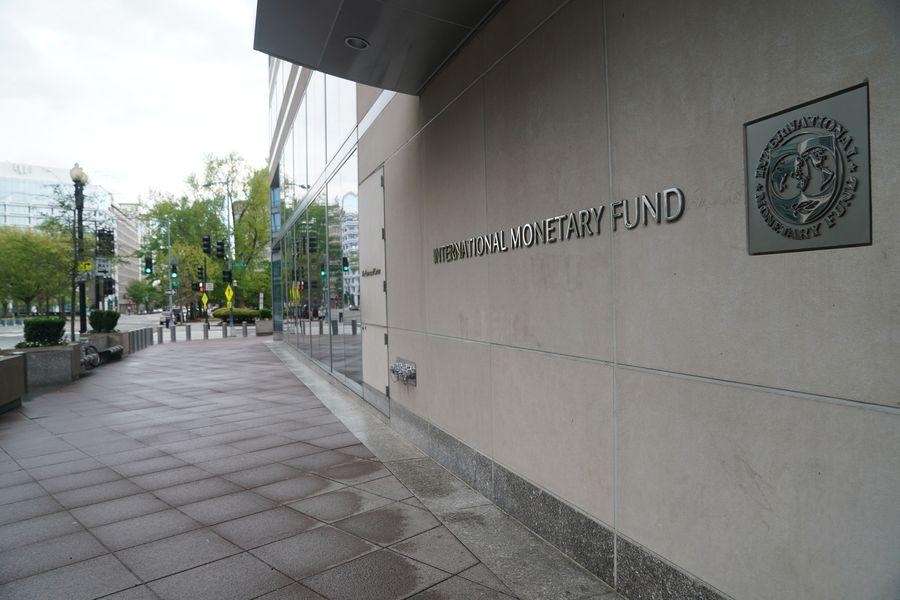
Editor's note: Since its proposal, some Westerners have never stopped discrediting the Belt and Road Initiative (BRI) in the past 10 years. Is the BRI predatory? Is it a geopolitical tool? Is the initiative a complete failure? Introduced at the BRI's 10th anniversary, Dispelling Misconceptions on BRI is an eight-part series debunking Western lies on the initiative. The second essay refutes the allegation of BRI as a "debt trap."
By Wang Yiwei
In recent years, Western countries led by the United States have increasingly raised concerns about "debt-trap diplomacy," suggesting that the Belt and Road Initiative (BRI) may be turning China into a conniving creditor while portraying participating countries as unsuspecting victims. But is the BRI truly creating a "debt trap," as some Western critics claim?
First and foremost, it is crucial to acknowledge that several developing countries in Asia, Africa, and Latin America are indeed grappling with significant debt burdens. However, these debt issues are primarily a consequence of an unjust and irrational global economic order – characterized by a monetary framework dominated by the U.S. dollar, a production chain controlled by Western multinational corporations, and trade mechanisms marked by unequal exchanges.
For decades, developed countries have exploited this outdated economic order to shift financial crises onto their developing counterparts, substantially undermining their economic potential and prospects. In essence, when it comes to the criticism of China for "debt-trap diplomacy," it is Western-led nations that bear the responsibility for the debt crises facing developing countries.
Furthermore, developing nations face pressing challenges in expanding their economies and enhancing the well-being of their citizens. The BRI, through substantial investments in infrastructure, offers a practical solution. It has been repeatedly demonstrated that for developing nations, the quality of infrastructure significantly influences their economic potential and efficiency in reducing poverty.
For instance, former Kenyan President Uhuru Kenyatta stated in a 2018 interview with CNN's Richard Quest that they had utilized their debt to bridge the infrastructure gap. He emphasized that, over the course of a decade, new roads and railways would contribute to improved business prospects and job opportunities for local youth.

A section of the Nairobi Expressway built by China Road and Bridge Corporation in Nairobi, Kenya. [Photo/Xinhua]
Several BRI projects, including the Hambantota port in Sri Lanka, the Gwadar port in Pakistan, and the Piraeus port in Greece, have collectively generated around 420,000 jobs in participating countries and have helped elevate nearly 40 million people out of poverty over the past decade, according to China's Foreign Ministry. The BRI has played an indispensable role in stimulating local economies, rather than burdening small nations with unmanageable debt.
Additionally, with regard to debt ownership, it is essential to recognize that Western developed countries and global financial institutions such as the World Bank and the International Monetary Fund (IMF), not China, are the principal creditors of developing countries.
According to data from the Belt and Road Institute in Sweden, in 2022, Western private and public institutions owned 80 percent of Sri Lanka's external debt, 70 percent of Pakistan's, and 77 percent of Zambia's, whereas China's share was only 10 percent, 15 percent, and 17 percent, respectively, for these three countries.
In reality, some countries had already become ensnared in heavy debt obligations prior to the proposal of the BRI. The BRI, with its focus on development-oriented sectors like infrastructure, presents a practical means to address these pre-existing debt challenges. The West created and accumulated a significant portion of the debt burdens in developing nations, and it is unfair to solely attribute these debt crises to the BRI.

The International Monetary Fund (IMF) Headquarters in Washington D.C., the United States. [Photo/Xinhua]
The Western narrative surrounding China's "debt diplomacy" is motivated by self-interest. First, some Western nations are concerned that BRI partner countries may choose China's initiative over their own. Many BRI infrastructure projects are executed by China's state-owned enterprises, and Western firms struggle to compete with them. Fearing that they might lose opportunities in developing countries, some Western actors have resorted to unfounded allegations against China's state-owned enterprises, accusing them of engaging in unfair competition and propagating false claims about China creating debt crises and forcing BRI countries to relinquish control of their land.
Moreover, some Western stakeholders are anxious about the growing influence of the BRI. Successful BRI cooperation has forged close ties between participating countries and China, enabling them to learn from China's developmental model. A series of China-led multilateral initiatives, such as the Belt and Road Forum for International Cooperation and the Forum on China-Africa Cooperation, have heightened Western concerns.
Consequently, they deliberately classify China's investments, loans, and aid as "debts" in an attempt to manipulate public opinion.
Additionally, the BRI has reduced the scope for Western interventions in other countries, a development that the West does not view favorably. Before the BRI was proposed, developing nations had no choice but to borrow from Western-dominated financial institutions, such as the World Bank. With the introduction of the BRI, developing nations gained more options, including the Asian Infrastructure Investment Bank and the Export-Import Bank of China.
This has, to some extent, challenged the Western-dominated governance structure, making it less likely for Western powers to meddle in the domestic affairs of developing countries.
The claims of the BRI being a "debt trap" are driven by Western self-interest, power dynamics, institutional structures, and even ideological concerns. Such narratives are not only biased but also short-sighted. The BRI is not a unilateral endeavor by China; it is a collaborative initiative involving countries from around the world. It is imperative for the West to recognize this before unfairly discrediting the BRI as a "debt trap."
The author Wang Yiwei is Jean Monnet Chair Professor, Director of Institute of International Affairs, Director of Center for European Studies at Renmin University of China.

 中文
中文



